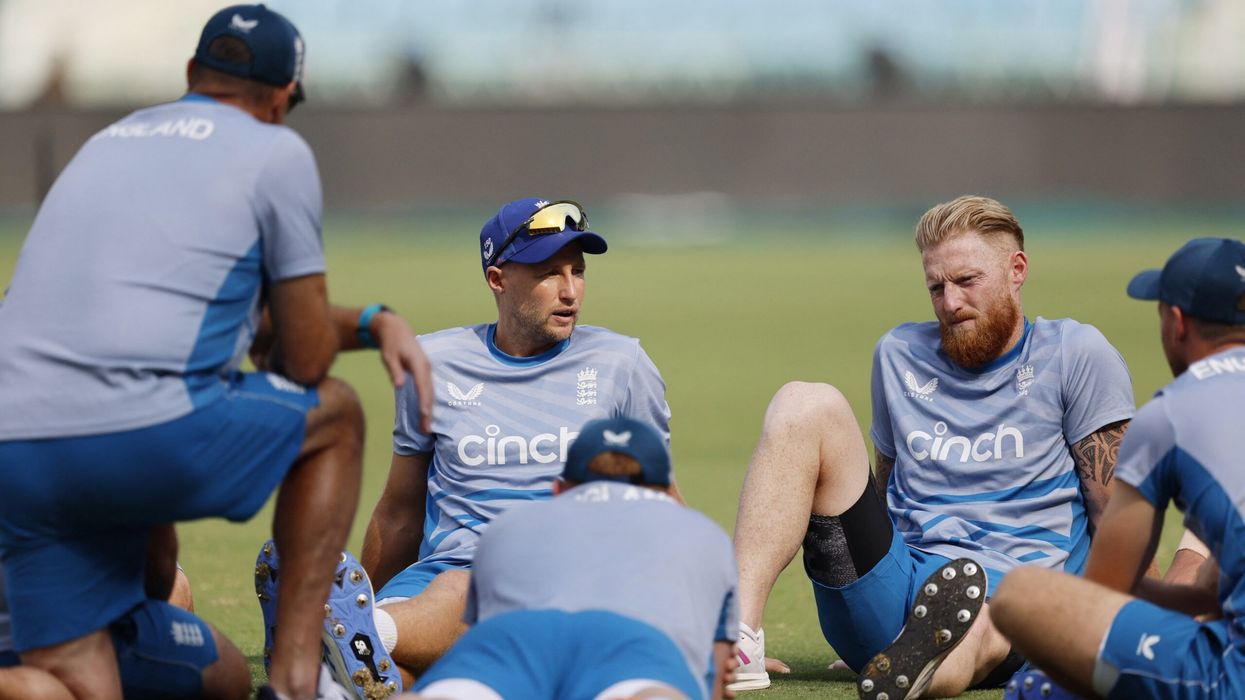Facing a formidable opponent on foreign soil, England's war-weary cricket team gears up for their World Cup challenge against India at a venue historically significant for intense battles, adding to the pressure of the already tense tournament.
The past and present cricket powerhouses meet Sunday (29) in Lucknow not far from the ruins of the Residency, an imposing Victorian compound blockaded by mutinous Indian troops for six months during the British colonial era.
What remains of its colonnades and sun-bleached pink brick walls are still pockmarked with cannon shot from the Siege of Lucknow in 1857, now seen as part of the opening salvo of India's efforts to free itself from the colonial yoke.
"That was the first significant revolution against the British," university lecturer Ranjit Bahadur, 47, told AFP on one of the compound's manicured lawns.
Bahadur said he had travelled to Lucknow with his family from their home near Kolkata -– back then Calcutta and the seat of British rule over the subcontinent –- to show his two young children the history recounted in their textbooks.
Simmering grievances against British rule boiled over weeks before the siege began, when Indian soldiers near Delhi revolted and killed their British commanders, triggering the thwarted uprising once known in Britain as the Sepoy Mutiny.
Lucknow's British population retreated behind the fortified walls of the Residency -- the colonial authorities' administrative headquarters in the city -- in May and spent half a year beating back assaults while waiting for rescue.
Around 2,500 of them were killed or wounded, their actions under fire immortalised by their own side in poetry and military honours.
Indian casualties are unknown. But some estimates suggest around 100,000 civilians were killed in the region around Lucknow as the revolt was suppressed, in gruesome reprisal attacks cheered on by the British press.
The siege holds the record for the most Victoria Cross medals won on a single day, with Britain's highest military honour awarded 24 times during efforts to relieve the garrison on November 16.
Alfred Tennyson, then the United Kingdom's poet laureate, commemorated the battle in a ballad that claimed the British flag had never flown "with mightier glory" than from the roof of the Residency.
In India, the siege carries its own resonance: a plaque installed near the entrance to the compound refers to the site as "witness to our first War of Independence", 90 years before the end of British rule.
Gopal Sharma, an off-duty state police officer strolling the grounds with a friend, said the Residency was a reminder of the turning of tides between both countries in the time since.
"Back then, India wasn't that developed," he told AFP.
"Right now, India is way ahead of England," he added. "Even the English have forgotten that they once ruled India."
- 'India will win' –
Sharma's assessment is representative of a broader optimism about India's future and a sense of triumph over its former colonial master.
While the sun once never set on the British Empire, India, this year became the world's most populous nation.
In 2022 it overtook Britain to become the world's fifth-largest economy while Rishi Sunak, who has South Asian roots, became Britain's prime minister, prompting wry jokes about a reversal of colonial fortunes.
Indian prime minister Narendra Modi's government has sought to erase symbols of colonial rule, in recent months promoting the use of "Bharat" as the country's name, rather than the "India" imposed by colonisers.
And on the cricket field, a game birthed in England and exported across the empire is now dominated by India thanks to its immense popularity in the subcontinent.
India are hot favourites to win the ODI World Cup, repeating their triumph on home soil in 2011, and are yet to lose a match more than halfway through the tournament.
Reigning champions England meanwhile have suffered through a dismal campaign, languishing near the bottom of the table, and a loss on Sunday would effectively end their chances of making the semi-finals.
But while England have beaten the odds in Lucknow before, gardener Arjun Prasad, an avid cricket fan who has tended the grounds of the Residency for more than three decades, said a rerun of the battle's lucky escape was not on the cards.
"My experience says that India will win," the 58-year-old said.
"England's performance is not up to the mark."
(AFP)




